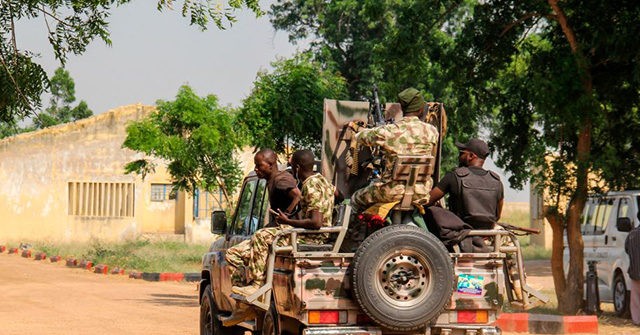A panel investigating human rights violations in the insurgent-plagued northeast has heard testimony from 50 witnesses on abuses perpetrated by the Nigerian military, including mass abortions and the murder of children, the Premium Times of Nigeria reported on Monday.
The Panel on Human Rights Violations in Counter-Insurgency Operations in North-East Nigeria was convened in February 2023, prompted in part by public outrage over a December 2022 report from the Reuters news agency.
That report, entitled “Nightmare in Nigeria,” detailed efforts by the military to crush the Boko Haram insurgency by countering one brutal tactic with another. Boko Haram was noted for kidnapping and raping women to forcibly impregnate them. The Nigerian military chose to solve this problem by aborting and killing the children of insurgents.
According to Reuters, the Nigerian military launched a secret abortion program in 2013 that terminated at least 10,000 pregnancies and brutally massacred dozens – perhaps hundreds – of children discovered during raids on villages occupied by the insurgents. Witnesses told Reuters of children seized by the military and never seen again, or killed by suffocation and shooting right in front of their mothers. Some of the witnesses were soldiers who said they took part in the targeted murder of children.
“I don’t see them as children. I see them as Boko Haram. If I get my hands on them, I won’t shoot them, I will slit their throat … I enjoy it,” one Nigerian soldier told Reuters, explaining that he saw the child murders as acts of revenge for a friend killed by the insurgents.
Some Nigerian military officials strenuously denied the Reuters allegations, while others refused to comment on the report.
“It has never happened, it is not happening, it will not happen,” insisted Maj. Gen. Christopher Musa, leader of the counterinsurgency operation, in December.
“It is not in our character. We are highly professional. We are human beings, and these are Nigerians that you have been talking about,” Musa said.
The secretary of the investigating panel, Hilary Ogbonna, said on Monday that eyewitness testimony was collected during fact-finding missions to the northeastern states of Adamawa, Borno, and Yobe. Investigators visited several hospitals and military barracks in the region.
A human rights adviser to the panel said:
So far, we have collected testimonies from over 50 witnesses, including the Nigeria Armed Forces, military, civilians and hospitals of the three states. We are just concluding our hearing in Yola. We are going back to Abuja to continue with our documentation and analysis of evidence that we gathered.
The panel includes a retired Nigerian Supreme Court justice, representatives of human rights organizations and the Nigerian bar association, doctors, and retired military officers. Chief of Defense Staff Lucky Irabor nevertheless dismissed the work of the panel as “outright nonsense.”
“Their allusion is news to me. It never occurred. I never saw anything like that from Maiduguri down to Maimalamari Cantonment, where I lived – that is a major hospital for our personnel and their family. I am disappointed to say the least. So it is not true,” Irabor said.
Reuters did not give the panel much of a chance against the Nigerian military in a dour assessment published in February. Among other dismaying indicators, Reuters noted the panel was convened by the government-funded Nigerian National Human Rights Commission (NHRC), which was “hobbled by a lack of authority to compel military leaders and other officials to punish or prosecute anyone.”
Several Nigerian observers told Reuters the NHRC is largely staffed by “brave” and “serious” people, but it has long served as a bureaucratic burial ground for allegations rejected by military leadership – a “red herring” to distract the public from the inaction of officials who actually could indict suspects, such as the attorney general and chief police inspector. During past investigations of human rights abuses, the military has threatened and harassed NHRC members, including commission chairs.
Lucky Irabor initially sneered at the investigation, contending that cooperating with the investigative panel would be a “waste” of his time and energy, and took it seriously only after intense international pressure. President Muhammadu Buhari and his top officials have refused to comment on the allegations or offer public support for the investigation.
Buhari disabled the NHRC entirely between 2015 and 2021 by the simple expedient of leaving it without six members, since its rules require a quorum of six to take any action at all. He has also left the commission with about half the funding it would need to process its current caseload.
Reuters expected little concrete action from the international community because Nigeria is strategically important, especially during the Biden administration’s highly-touted “pivot to Africa,” and the northeastern insurgencies of Boko Haram and the Islamic State are real problems that only the Nigerian military is positioned to deal with.
“Washington and London, along with the U.N. and international humanitarian agencies, have struggled for years with the tension between offering support to the Nigerian government during the war and denouncing alleged abuses by its military against civilians,” Reuters noted.


